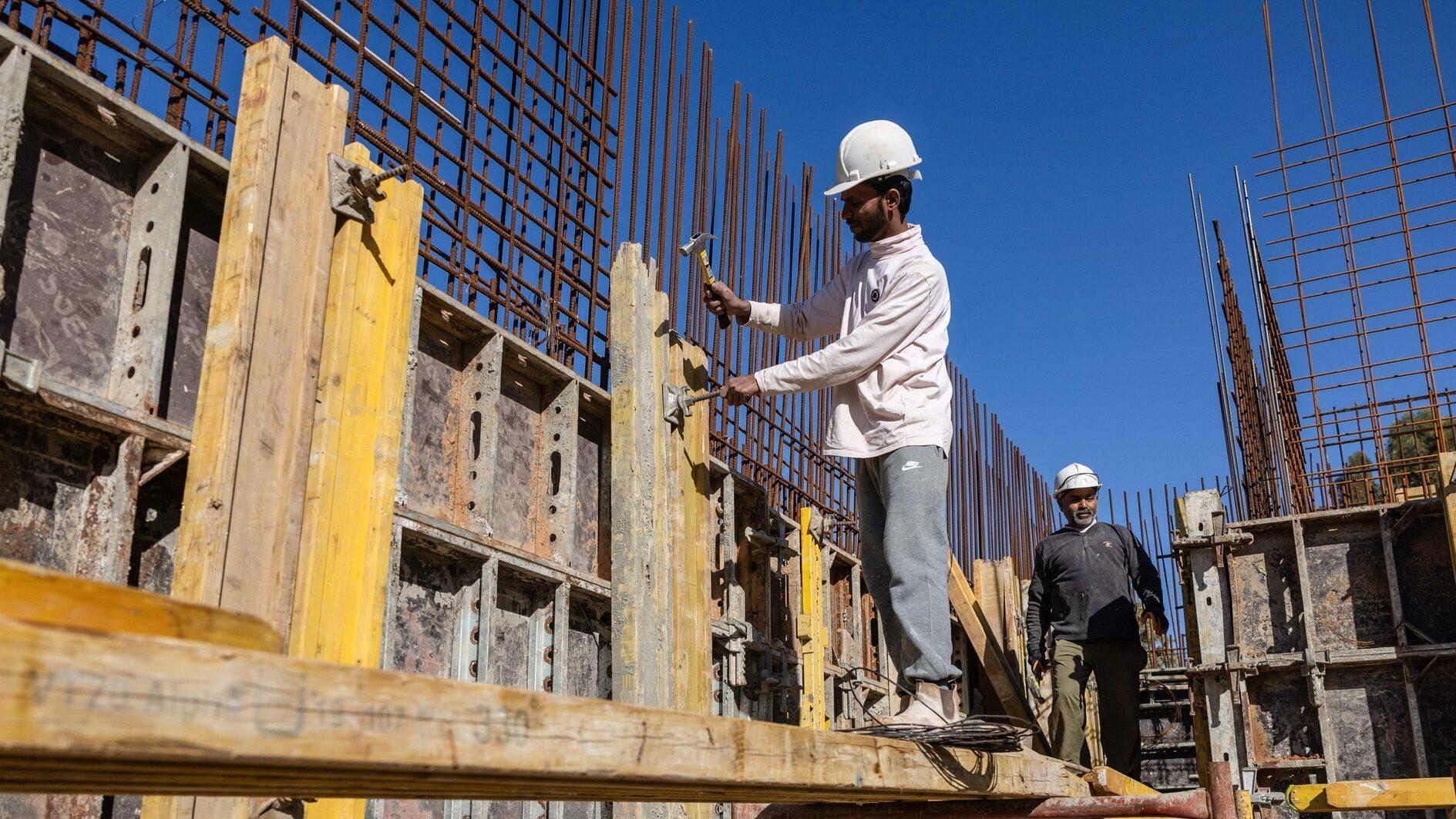
Wearing a safety belt, helmet and work boots, Raju Nishad navigates the scaffolding, hammering blocks that will form part of a building in a new neighbourhood in central Israel's town of Beer Yaakov.
While he and other Indians working alongside him do not look out of place on the expansive construction site, they are relative newcomers to Israel's building industry.
They are part of an Israeli government effort to fill a void left by tens of thousands of Palestinian construction workers barred from entering Israel since Hamas's October 2023 attack.
If that attack had not happened, this site, with its slowly emerging high-rise towers, homes, roads and pavements, would have teemed with laborers speaking Arabic, unlike the Hindi, Hebrew and even Mandarin of today.
The Hamas attack triggered the deadliest war yet between Israel and militant group Hamas in the Gaza Strip.
It later spread to include other Iran-backed groups including Hezbollah in Lebanon and Huthi rebels in Yemen, and even direct confrontation with the Islamic republic itself.
None of this deterred Nishad, 35, from coming to Israel.
"There's nothing to be afraid of here," he said, despite several air raid warnings that have sent him running for the shelters.
"Once it [the siren] stops, we just resume our work," he told AFP.
High earnings in Israel, where some workers can make three times what they would back home, are the key to why people like Nishad flock here, thousands of kilometers away.
He is just one of around 16,000 workers who have come from India over the past year and Israel has plans to bring thousands more.
India is the world's fifth-largest economy and one of the fastest growing, but it has also struggled to generate enough full-time jobs for millions of people.
Indians have been employed in Israel for decades, thousands as caregivers looking after elderly Israelis, while others work as diamond traders and IT professionals.
But since the war in Gaza escalated, recruiters have launched a drive to bring Indians in for Israel's construction sector also.
Israeli researchers believe the number of Indians working in construction still does not match the number of Palestinians who did so before the war, and this is hampering the sector's overall growth.
Before the Hamas attack, around 80,000 Palestinians were employed in construction, along with some 26,000 foreigners, Eyal Argov of the central Bank of Israel said.
Now there are about 30,000 foreigners employed, far fewer than the previous overall workforce figures, he said, adding that activity in the current quarter of 2024 is about 25 percent below pre-war levels.
"These numbers [of Indians] are still very low," Argov said.
While this does not create an immediate "shortage of housing, it may cause delays in the supply of new housing", he said.
"Israel has a growing population, increasing by two percent annually, and this delay might lead to some shortage in the future."